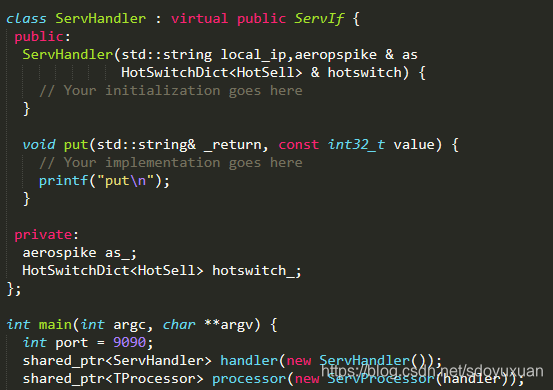thrift 原始碼剖析1 :TProcessor
阿新 • • 發佈:2018-12-20
TProcessor
這層主要負責應用層也就是需要我們平常自己實現的一層,它裡面封裝了Handler類。一般thrift 生成的程式碼中我們只需要負責寫Handler類的邏輯即可,Handler中的邏輯就是我們自己定義的服務邏輯。
分析 demo
Service Serv {
string put(1:i32 value) ,
}
Handler


Processor
thrift 內部檔案程式碼:
class TProcessorEventHandler { 呼叫邏輯流
TDispatchProcessor::processor -> ServProcessor::dispatchCall -> ServProcessor::process_put
--> Handler::put
從上面的原始碼可以看出ServProcessor::ProcessMap 主要用來查詢方法的,當client發起相應RPC時,RPC會把相應函式的名字傳過去,Server收到函式後就在ProcessMap查詢是否有相應函式名的函式,有使用相應函式指標去呼叫函式,隨後會呼叫相應的業務函式去進行業務處理然後把結果返回回去。
